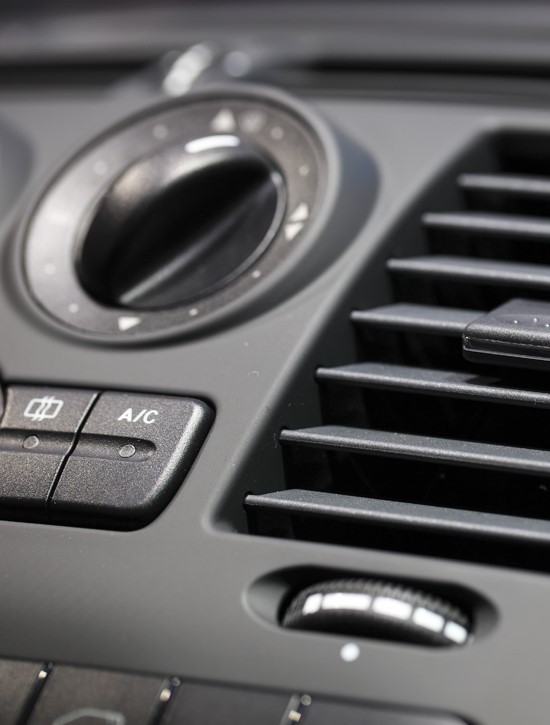 |
Pride in the profession |
||||

|
The refrigeration and air conditioning (RAC) industry is critical to modern life and has a profound impact on the community. Few industries have such a large influence on everyday life than the RAC industry. Just think, a blood transfusion or surgery cannot be performed without the work of a refrigeration technician, not to mention the importance of technicians to other industries like the fresh food industry and scientific research. RAC industry scheme members have increased the level of skills in the RAC industry across the nation and have contributed significantly to the prevention of greenhouse gas emissions by approximately 24.37 megatonnes of CO2 since the scheme's inception. |
|||
|
|
||||
Risky business - unlocking your risk management plan for refrigerants |
||||

|
Why do I need a risk management plan? Businesses need to be aware of their risks. Overall business success depends largely on effective management and minimisation of risk - refrigerant is no different. Under the Ozone Protection and Synthetic Greenhouse Gas Management Regulations 1995, a condition of holding a Refrigerant Trading Authorisation (RTA) is implementing an effective risk management plan (RMP), which outlines the handling and storage of refrigerant in the holder's business. An RMP must identify potential risks which could result in the emission of refrigerant to the atmosphere and identify processes and practices that minimise the possibility of those risks occurring. Your RMP must reflect the risks of emissions relevant to all parts of your business practices, including refrigerant handling, storage and transport. This applies whether your business is conducted from a vehicle or building, and whether you are a sole trader or employ 100 or more technicians. |
|||
|
|
||||
Nitrogen is not Nitrogen |
||||

|
Dry nitrogen purging when welding pipework. Nitrogen purging is an integral process in producing a quality HVAC-R system, however there are some factors to be aware of. Brazing at such high temperatures results in a heavy black oxide (cupric oxide), forming both inside and outside of the pipe. On cooling, this oxide flakes off to form scale. While only a cosmetic issue on the outside, inside the tube the oxide flakes are carried by the refrigerant through the system. This can result in loss of performance or failure of a system component. This problem has long been an issue when brazing HVAC-R pipework. It has become more important with the change from HCFC refrigerants, like R-22 that use mineral oil, to HFC refrigerants (R410a) using polyol ester (POE) oils. POE oils have a solvent effect and can 'scrub' the copper tube walls. Oxide from tube walls and loose scale can circulate through the system, usually ending up in the crankcase of the compressor. |
|||
|
|
||||
Convert your customers to preventative maintenance |
||||

|
With regular maintenance your customers can save money. Refrigeration and air conditioning licensed technicians, as qualified professionals, have an opportunity to make customers aware of: why they carry out their work in a certain way; why it is inherently beneficial to the customer; and why it is necessary, from an environmental and legal perspective, to employ a licensed technician who can properly maintain and repair equipment. Not only does leaking equipment directly emit environmentally harmful gasses to the atmosphere, equipment runs less efficiently and this causes indirect emissions through greater electricity use. For the equipment owner, this lowered efficiency and loss of refrigerant can have a financial impact on repairs and the life expectancy of the system, in addition to the cost of reducing the leaking refrigerant. |
|||
|
|
||||
Australia's HFC phase-down: providing certainty for business |
||||

|
The Australian Parliament has passed legislation to implement a gradual phase-down of hydrofluorocarbon (HFC) imports over almost 20 years from 1 January 2018. The phase-down will result in an 85% reduction in imports (and therefore emissions) of HFCs. HFCs are the most commonly used refrigerants both in Australia and worldwide. Refrigerants include R404a, R410a and R134a. When emitted, HFCs trap heat in the atmosphere adding to the impact on the climate. Introduction of the legislation, first announced by the Government in June 2016 and passed in June 2017, was the next step in implementing the phase-down. Australia's phase-down leads the global phase-down agreement under the Montreal Protocol. The global phase-down was agreed in October 2016 and commits all 197 United Nations member states to phase-down imports and production of HFCs within a set timeframe. The global phase-down puts all countries on a level playing field by applying the phase-down through the Montreal Protocol on substances that Deplete the Ozone Layer, to which there are 197 parties covering both developed and developing countries. | |||
|
|
||||
New auto gas under microscope at AAA Expo |
||||

|
For the fourth time, the ARC exhibited at the Australian Automotive Aftermarket and Collision Repair Expo, in Melbourne from the 6-8 April. This event attracts a variety of people, in particular, automotive air conditioning and refrigerant recovery licence holders. With almost 30,000 Automotive air conditioning licence holders Australia-wide, it is important the ARC attends these exhibitions to meet technicians, provide advice and offer relevant education material. The main questions from the event were around the transition from R134a refrigerant to R1234yf and what this means for industry. | |||
|
|
||||
Penalties increase for offences listed under the Ozone Act and Regulations |
||||

|
Penalties have increased for offences listed under the Ozone Protection and Synthetic Greenhouse Gas Management Act 1989 and the Ozone Protection and Synthetic Greenhouse Gas Management Regulations 1995. The Crimes Act 1914 (Cth) has been amended to increase the Commonwealth penalty unit from $180 to $210 per penalty unit, effective from 1 July 2017. Penalty units apply where a person or corporation has committed a Commonwealth offence. This includes offences listed under the Ozone Protection and Synthetic Greenhouse Gas Management Act 1989 (the Act) and the Ozone Protection and Synthetic Greenhouse Gas Management Regulations 1995 (the Regulations). | |||
|
||||
Website: www.arctick.org | ARC Hotline: 1300 88 44 83 |
||||
|
© 2017 Australian Refrigeration Council | All Rights Reserved. Locked Bag 3033, Box Hill, Vic, 3128 | Phone: 1300 88 44 83 | enquire@arctick.org Click here to un-subscribe from our mailing list. |
 |
|||